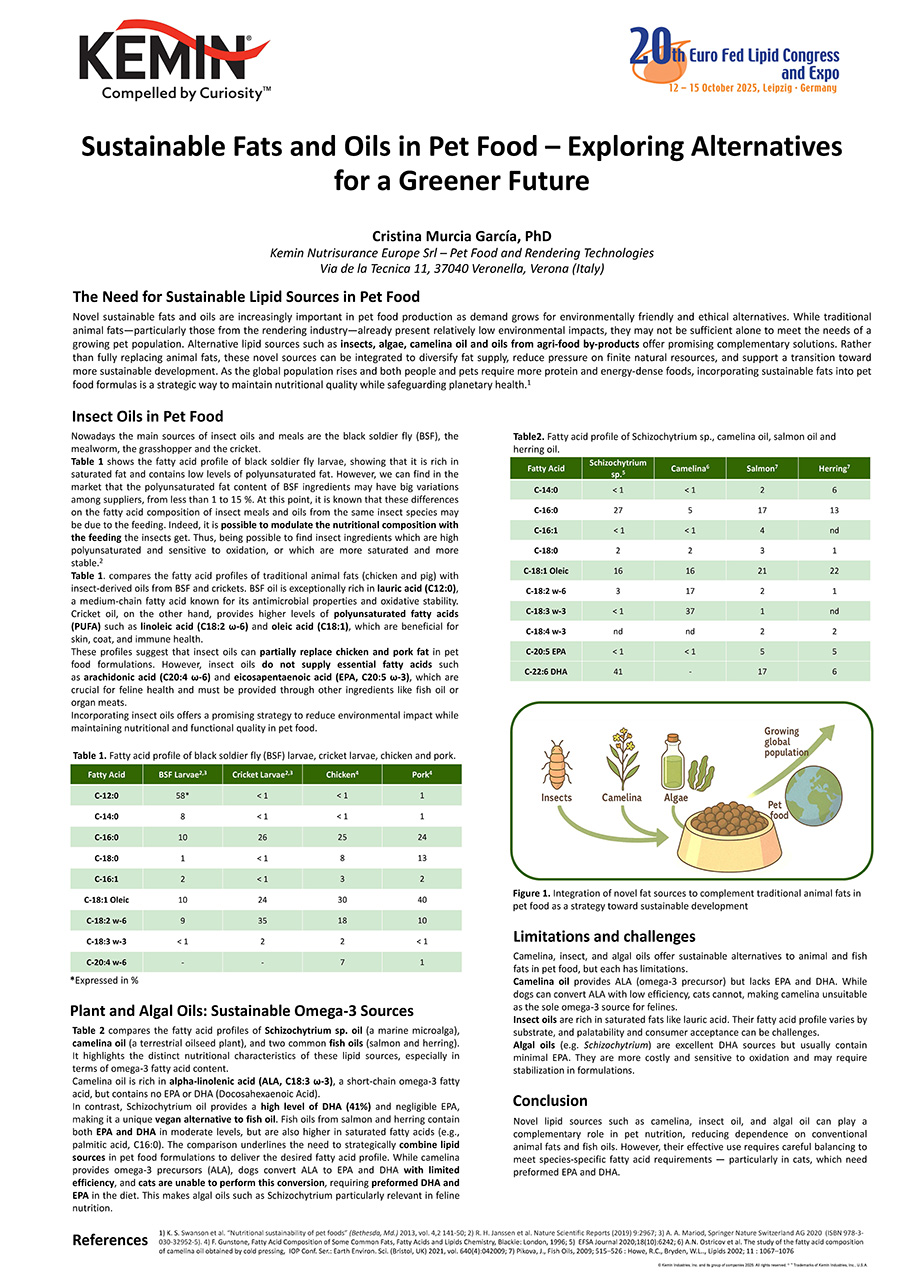Novel sustainable fats and oils are increasingly important in pet food production as demand grows for environmentally friendly and ethical alternatives. While traditional animal fats—particularly those from the rendering industry—already present relatively low environmental impacts, they may not be sufficient alone to meet the needs of a growing pet population. Alternative lipid sources such as insects, algae, camelina oil, and oils from agri-food by-products offer promising complementary solutions. Rather than fully replacing animal fats, these novel sources can be integrated to diversify fat supply, reduce pressure on finite natural resources, and support a transition toward more sustainable development. As the global population rises and both people and pets require more protein and energy-dense foods, incorporating sustainable fats into pet food formulas is a strategic way to maintain nutritional quality while safeguarding planetary health. This review examines the role of these sustainable fats in pet food, their nutritional benefits, and their potential to reduce the environmental impact of pet food manufacturing. Furthermore, this work underscores the role of consumer acceptance and advanced processing technologies in promoting the use of these sustainable ingredients in pet food.
Keywords: insects, algae, agri-food by-products, environmental impact, plant-based
